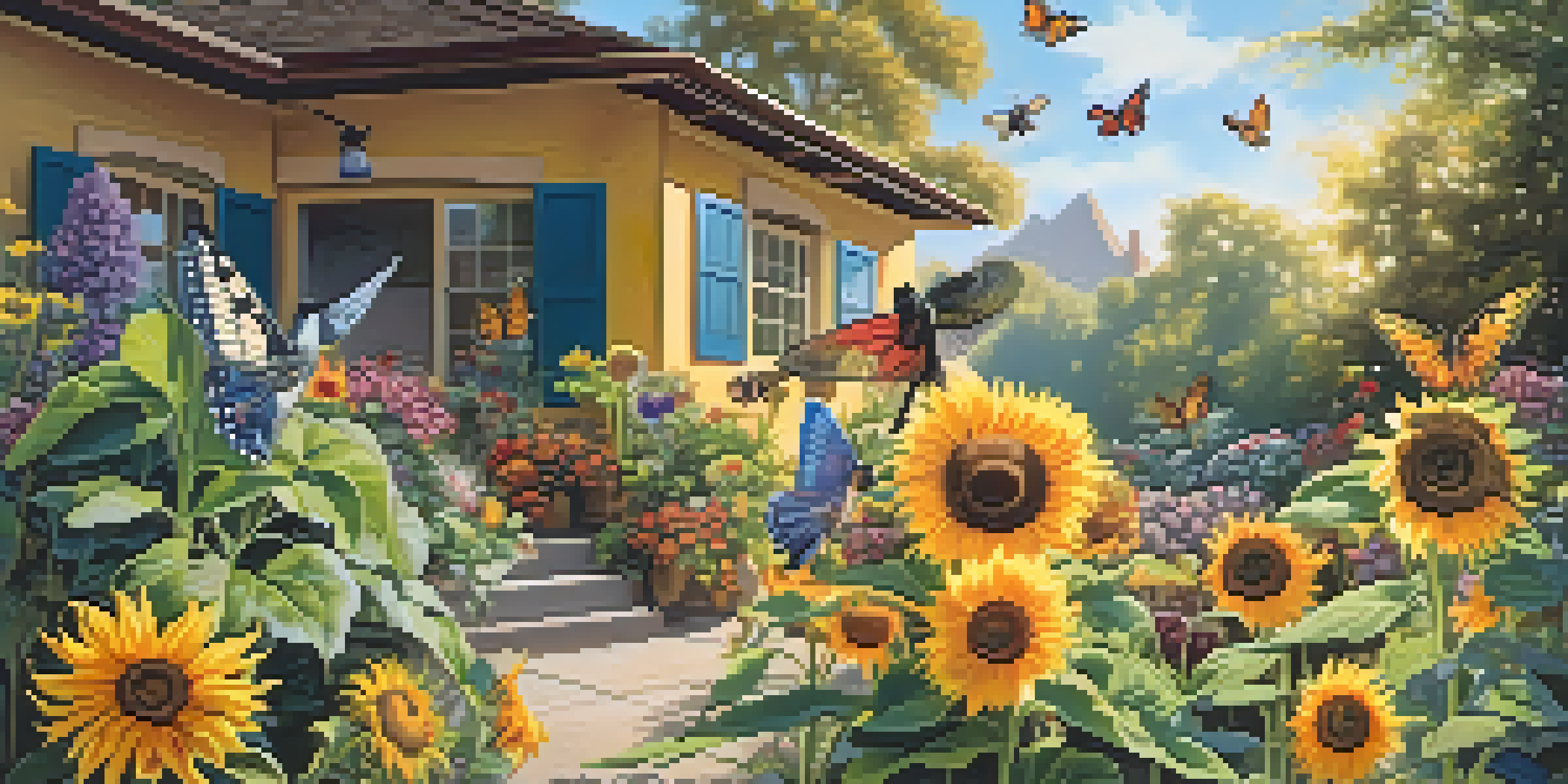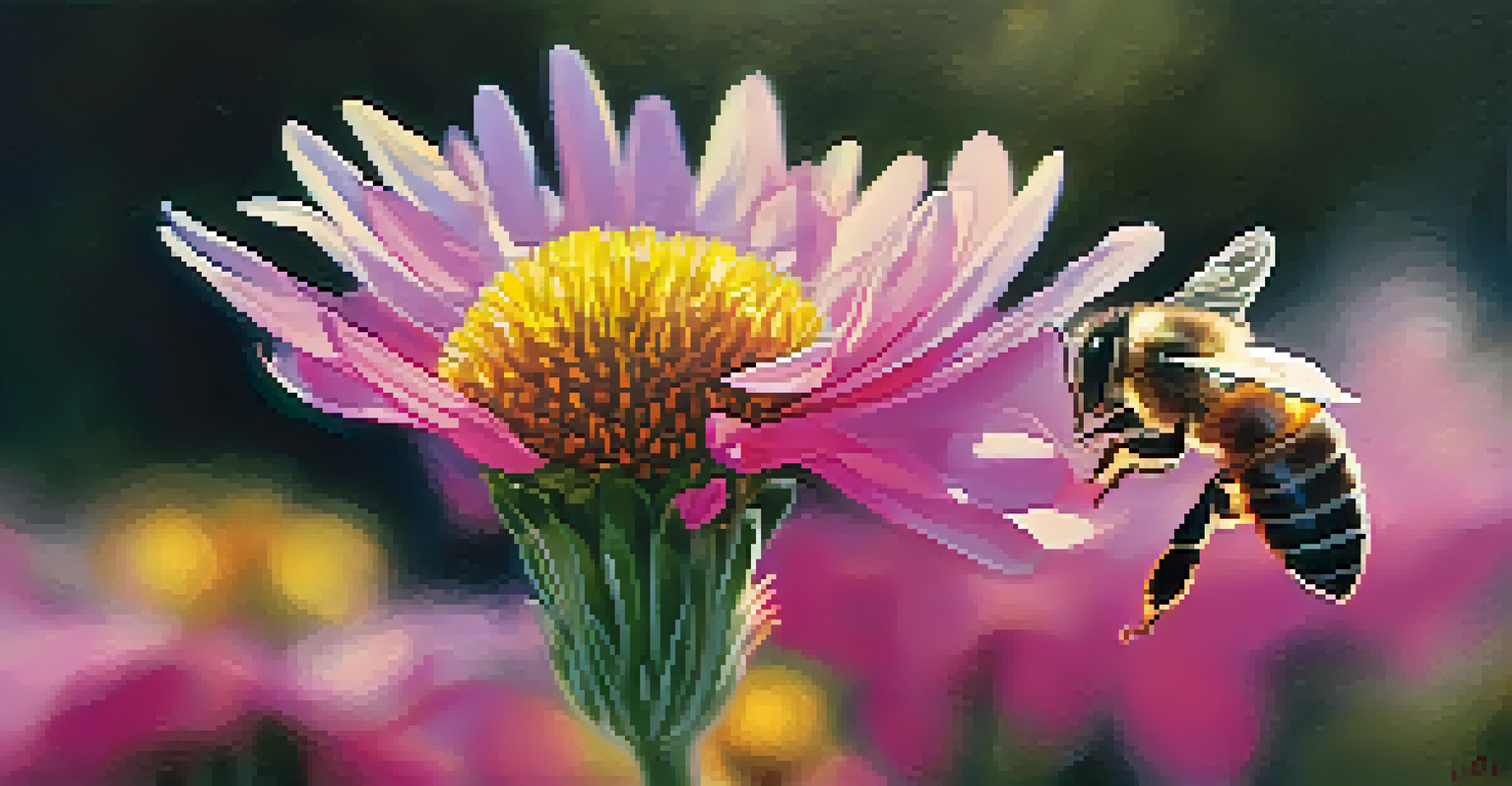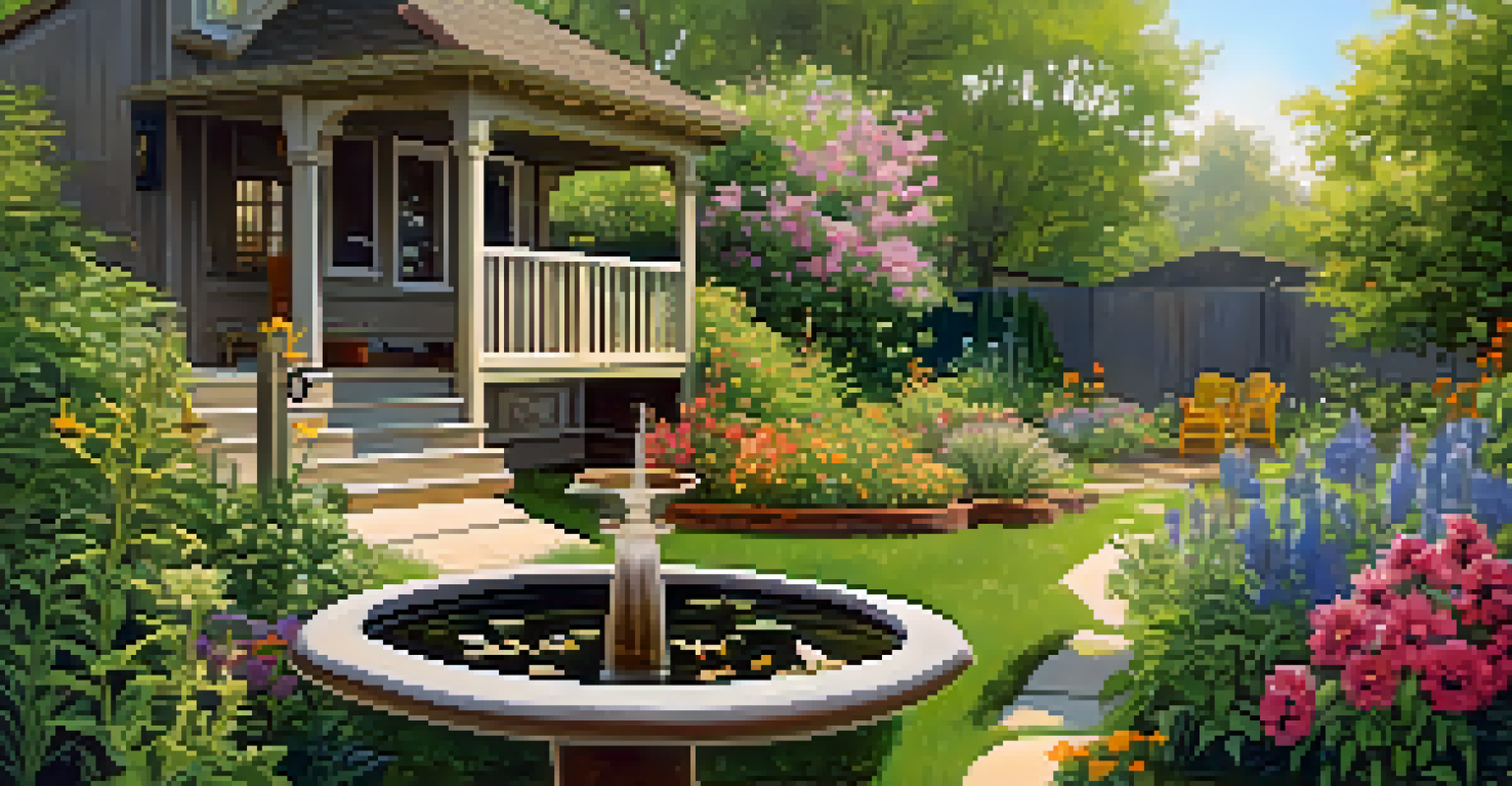Bees, Butterflies, and Birds: A Trio for Plant Health

The Importance of Pollinators in Our Ecosystem
Pollinators like bees, butterflies, and birds play a crucial role in the ecosystem. They are responsible for the reproduction of many flowering plants, which in turn support other wildlife. Without these pollinators, our food supply and natural landscapes would drastically change.
If we kill off the wild, then we will die of loneliness.
For instance, bees are known to pollinate about one-third of the food we consume, including fruits, vegetables, and nuts. Butterflies contribute to the pollination of many wildflowers, while birds like hummingbirds also aid in this vital process. Their actions ensure the continuation of plant species, which are essential for maintaining biodiversity.
Ultimately, the health of our planet is intertwined with the presence of these pollinators. By understanding their importance, we can take steps to protect them and their habitats, fostering a more sustainable environment.
Bees: The Heavyweights of Pollination
When we think of pollinators, bees often come to mind due to their remarkable efficiency. These industrious insects visit thousands of flowers each day, transferring pollen from one bloom to another, which is essential for fertilization. Their unique ability to communicate and work in colonies allows them to cover large areas effectively.

Honeybees, in particular, are known for their role in agricultural pollination. They have a unique dance that informs other bees about the location of flowers, demonstrating a level of teamwork that is fascinating. This not only benefits the plants but also farmers, who rely on these pollinators for higher yields.
Pollinators Are Essential for Life
Bees, butterflies, and birds are vital for the reproduction of many plants, directly impacting our food supply and biodiversity.
However, bee populations are declining due to habitat loss, pesticides, and climate change. Supporting local beekeepers and planting bee-friendly flowers can help reverse this trend and ensure that these vital pollinators continue to thrive.
Butterflies: Beauty and Functionality in Nature
Butterflies enchant us with their vibrant colors and graceful flight, but they also serve an essential ecological purpose. As they flit from flower to flower, they collect and transfer pollen, aiding in plant reproduction. This symbiotic relationship is crucial for the health of many ecosystems.
The best time to plant a tree was 20 years ago. The second best time is now.
Moreover, butterflies are indicators of a healthy environment. A diverse butterfly population often signifies a rich array of plants and a balanced ecosystem. Their presence can tell us a lot about the state of our environment, making them important for conservation efforts.
To attract butterflies to your garden, consider planting native plants that provide nectar and habitat. Simple actions like these can create a haven for these beautiful creatures while enhancing the health of your plants.
Birds: Nature's Pollinators and Seed Dispersers
While bees and butterflies are often celebrated for their pollination work, birds also play a significant role in maintaining plant health. Many bird species, like hummingbirds, are attracted to flowers for their nectar, effectively transferring pollen as they feed. This interaction not only benefits the birds but also promotes the growth of flowering plants.
Additionally, birds help disperse seeds, allowing plants to colonize new areas. For example, a bird might eat a berry and later deposit the seeds in a different location, promoting the growth of new plants. This natural process contributes to biodiversity and the resilience of ecosystems.
Creating Habitats Supports Wildlife
Planting native flowers and providing resources like water and nesting sites can significantly enhance the survival of pollinators.
Creating bird-friendly spaces in your garden, such as birdhouses and feeders, can encourage these helpful visitors. By providing a welcoming environment, you can support both bird populations and the health of your plants.
The Interconnectedness of Bees, Butterflies, and Birds
Bees, butterflies, and birds form a delicate web of interactions that supports plant health and biodiversity. Each species relies on the other in various ways, whether through pollination, seed dispersal, or creating habitats. This interconnectedness is a beautiful reminder of how nature operates as a cohesive unit.
For instance, a garden rich in diverse plants can attract a variety of pollinators, which in turn supports bird populations. The more we encourage this diversity in our own gardens, the healthier our ecosystems can become. It’s like hosting a party where everyone has a role to play, making the environment vibrant and resilient.
Recognizing these relationships encourages us to be more mindful of our gardening choices. By planting a variety of flowers and providing food sources for birds, we can create thriving ecosystems right in our backyards.
Creating Habitats for Our Essential Allies
To support the health of bees, butterflies, and birds, creating suitable habitats is vital. This can be as simple as planting native flowers, providing water sources, and avoiding pesticides. Each small change in our gardens can have a significant impact on the survival of these important species.
Native plants are particularly beneficial because they are adapted to local conditions and attract native pollinators. For example, planting milkweed can support monarch butterflies, while sunflowers can attract bees and birds alike. These plants not only enhance biodiversity but also create a more resilient garden.
Advocacy Fuels Conservation Efforts
By advocating for pollinator protection and engaging in community initiatives, we can foster a healthier environment for these crucial species.
Moreover, incorporating elements like birdbaths, nesting boxes, and bee hotels can provide essential resources for these creatures. By making our spaces more inviting, we contribute to the health of our environment and the planet as a whole.
Advocating for Pollinator Protection
As individuals, we can advocate for policies that protect pollinators and their habitats. Supporting local initiatives, such as community gardens and conservation programs, can help to raise awareness about the importance of these species. Every voice matters when it comes to creating a sustainable future.
Participating in or organizing events like 'Pollinator Week' can also spread awareness and encourage others to take action. Sharing your gardening successes or challenges with friends and family can inspire them to join the cause, creating a ripple effect of positive change.

Ultimately, by working together, we can create environments that support bees, butterflies, and birds. Protecting these essential allies not only benefits our gardens but also contributes to the overall health of our planet.